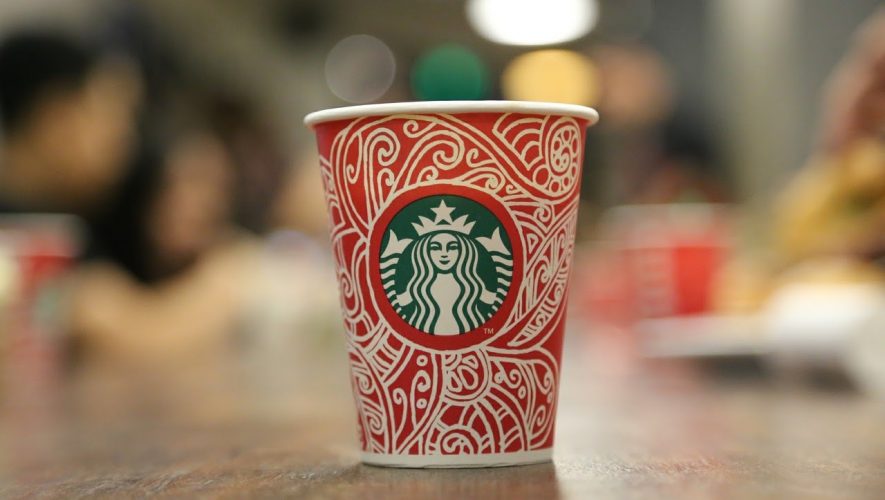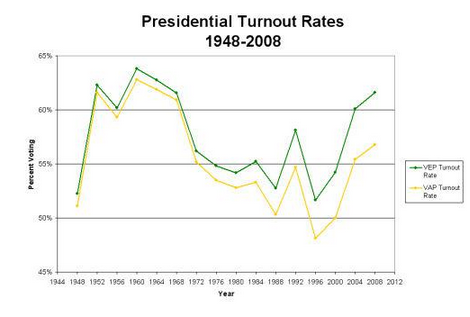It rolls around each year. String lights, trees, and wreaths pop up everywhere you look. An army of bell-ringing Salvation Army Santas descends on every street corner. Coffee chains serve peppermint drinks in red and green to-go cups. An overworked department store employee greets you with “Happy holidays!” As you browse the aisles, Mariah Carey’s voice croons overhead.
It’s December (or, more accurately, early November). And that can mean only one thing: holiday season.
For almost 90 percent of Americans, “holiday season” means Christmas. For 33 percent of Americans, the celebration is more about culture than faith. Over half of people think that Christmas is less about the religious elements now than it was in the past, but only a third of Americans are bothered by that fact. However, they tend to be a very vocal minority.
Starbucks famously faced controversy for igniting a “War on Christmas” by releasing secular festive cup designs around the holidays. Somehow, people believed that the company was erasing Christmas. While campaigning in 2015, Donald Trump addressed the cup outrage by floating the idea of boycotting the chain; he declared that, “If I become President, we’re all going to be saying Merry Christmas again.” And yet, no one has accused Starbucks of launching a “War on Hanukkah” by not including a menorah on their cups.
“Congress shall make no law respecting an establishment of religion, or prohibiting the free exercise thereof . . . ”
The freedom of Americans to practice or abstain from religion is worth celebrating; our Constitution calls for a separation between church and state to ensure this right. Legislators rule not by God’s law, but by the laws established by their predecessors.
But America has failed to embody this separation. In the Pledge of Allegiance, we declare ourselves “one nation under God.” Our money declares “In God We Trust.” “So help me God” ends the official oath of office for the Senate and House of Representatives.
America is a great place to be religious—as long as you’re a Christian.
For non-Christians, America can be a terrifying place. In 2018, 20 percent of hate crimes in the US were committed due to anti-religious bias. Jewish people make up only two percent of Americans but comprised 58 percent of hate crimes. In 2017, the number of anti-Muslim assaults was the highest since 2001. That same year, during the infamous Unite the Right rally in Charlottesville, Virginia, a crowd of around 250 people—mostly White men—marched through the University of Virginia chanting “Jews will not replace us!” and other antisemitic and White supremacist statements. Donald Trump referred to this group as “very fine people,” though he later claimed that he wasn’t talking about the neo-Nazis.
American Christians like to claim that they are oppressed for their religious beliefs, even when they are using those religious beliefs as an excuse to oppress others. Time and time again, the courts grant religious exemptions for anti-discrimination laws. Earlier this year, the Supreme Court broadened the definition of “ministerial exception,” which prevents employees of religious institutions from suing their employers over discrimination due to the religious nature of their job. This upcoming term, the Court will determine whether a religious adoption agency can deny same-sex couples.
Religious Christians also argued that the Democrats’ criticism of new Supreme Court Justice Amy Coney Barrett came from anti-Catholic bias. Trump’s deputy campaign manager said to top Catholic allies that “our faith as Catholics is under attack.” They portrayed criticism of Barrett as bias against her religion, rather than a legitimate argument about how her rulings are likely to harm vulnerable populations.
The conservative argument falls flat considering that the Supreme Court disproportionately represents Catholics. Around one-fifth of Americans are Catholic, but six of the nine Supreme Court Justices are—this statistic doesn’t include Neil Gorsuch, who was raised Catholic but reportedly attends an Episcopal church.
The overrepresentation of Catholics doesn’t just apply to the Supreme Court, and it’s not just Republicans—Joe Biden is Catholic, as is House Speaker Nancy Pelosi. Almost 90 percent of congresspeople are Christian; about 30 percent are Catholic. Christians, which make up about 70 percent of the American population, are overrepresented in Congress, while every other religion besides Judaism is underrepresented. There is no anti-Christian or anti-Catholic bias in politics; in fact, it could be argued that there is pro-Christian bias instead.
Elected officials commonly use religion to oppose same-sex marriage, abortion, and other policies. In 2019, Mike Pence and Donald Trump addressed the March for Life—a yearly march in Washington, DC, to protest Roe v. Wade, the decision that guaranteed access to safe, legal abortion. In a tweet about the event, Pence referred to the “God-given liberties enshrined in our Constitution” to advocate for defunding Planned Parenthood and reducing access to abortion.
While they claim immunity from criticism of their religious beliefs, conservative Christians are all too willing to use others’ faith against them. Representative Ilhan Omar (D-MN) has repeatedly been attacked for her Muslim faith. Trump has also accused her of antisemitism, even though he himself has used antisemitic tropes, such as invoking the idea that Jewish people are money-hungry and have dual loyalty to the US and Israel. His attacks on Omar are heavily based in racism, misogyny, and xenophobia, but the religious aspects cannot be ignored.
Trump has attacked Muslims for being anti-American, and in 2016 he said that he would not rule out creating a registry of American Muslims. Though it took multiple tries to get through the courts, Trump eventually blocked citizens of several Muslim-majority countries from entering the US. Republicans labeled Democrats as anti-Catholic for opposing Barrett’s nomination, but it’s not difficult to imagine the vitriol Republicans would employ if a Muslim were nominated.
Repeated criticism and attacks on non-Christian Americans highlight the belief that anyone who is not Christian is inherently less trustworthy and less American. The idea that there is any kind of anti-Christian bias in our government is hypocrisy at its finest. When the President uses antisemitic and Islamophobic tropes to discredit others but then claims that his Supreme Court nominee’s religion is off-limits, it shows just how deeply rooted Christianity is in the US.
Americans know very little about religions other than Christianity. About 80 percent of Americans know that Easter Sunday is the celebration of Christ’s resurrection, compared with 60 percent who know that Ramadan is an Islamic holy month and 24 percent who know that Rosh Hashanah is the Jewish New Year.
Easter and Christmas are two of the most common paid holidays in the US. A study of planned 2017 holiday schedules found that 27 percent of employers closed for Good Friday (the Friday before Easter Sunday), while less than one percent closed for the first and second days of Passover and two percent closed for the beginning of Ramadan.
The belief that Christmas should be prioritized erases other holidays and accuses non-Christians of erasing Christmas. Americans who don’t subscribe to a religious celebration of Christmas deserve to be included in the holiday spirit.
Starbucks holiday cup designs and the replacement of “Merry Christmas” with “Happy holidays” serve to acknowledge that Christians aren’t the only ones celebrating in December. The outrage towards secularism isn’t just reflective of Christians feeling that their faith is under attack—it reflects that White Christian conservatives feel as though they are under attack from increasing ethnic and racial diversity.
From 2015 to 2016, all racial and ethnic minorities experienced faster population growth than White people; it’s projected that people of color will outnumber White people by 2045. Nearly half of those born between 1997 and 2012 are racial and ethnic minorities. In 2018, a majority of Americans said that this increasing diversity is a good thing. However, opinion varies based on political views—14 percent of Republicans said that increasing diversity makes the US a worse place to live, compared to five percent of Democrats.
The “War on Christmas” is just one part of the ongoing “culture war” in America, one highlighted by the rapid spread of Black Lives Matter protests earlier this year. Marginalized groups are increasingly less tolerant of the discrimination and violence they have experienced for centuries. White Christians who feel threatened by these protests are scared of being treated the way people of color and non-Christians have always been treated.
Diversity is strength. It is up to Americans to ensure that people of all religions, ethnicities, and races feel safe, heard, and understood in this country. That starts with acknowledging the experiences of those different from you; wishing someone “Happy holidays!” would be a good start.



